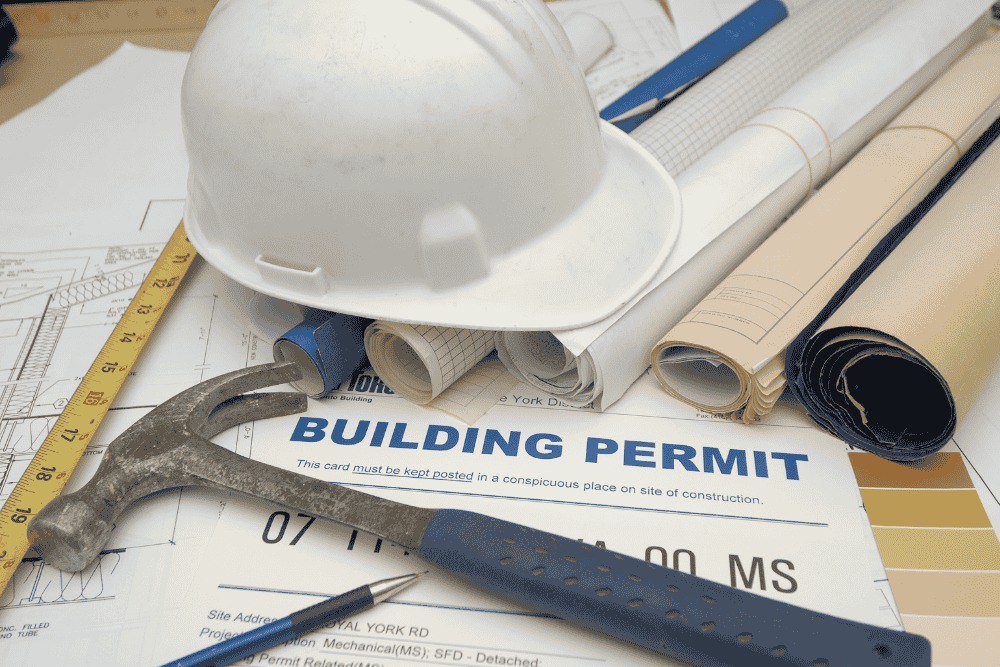Construction Permit Requirements | What You Need to Know
When it comes to any construction project, one of the most essential steps is securing the appropriate construction permits. Understanding construction permit requirements is critical for ensuring that your project complies with local building codes, regulations, and zoning laws. Whether you’re embarking on a residential or commercial construction project, this guide will provide the insights you need to navigate the permit process with ease and avoid costly delays or fines.
What Are Construction Permits?
A construction permit is a legal authorization issued by local government agencies that grants permission to carry out construction or renovation work. It is issued to ensure that the planned work complies with safety standards, zoning laws, and building codes. Depending on the scope of your project, different types of permits may be required, and they are typically issued by local building or planning departments.
Types of Construction Permits
There are several types of construction permits, each designed to address specific aspects of construction. Common types include:
- Building Permit: Required for new construction or major renovations.
- Electrical Permit: Needed for electrical work, such as installing wiring or lighting.
- Plumbing Permit: Required for any plumbing installations or modifications.
- Mechanical Permit: Needed for HVAC (heating, ventilation, and air conditioning) systems.
- Demolition Permit: Required for the removal of structures.
- Zoning Permit: Ensures the project adheres to local zoning laws.
- Occupancy Permit: Required to legally occupy a building after construction.
Each of these permits serves a different purpose, and knowing which ones apply to your project is crucial.
Why Are Construction Permits Important?
Construction permits are necessary for several reasons. They ensure:
- Compliance with Local Laws: Permits ensure that the construction follows the local zoning laws and building codes.
- Safety Standards: Permits help ensure that the construction meets safety standards, protecting both the workers and future occupants of the building.
- Property Value Protection: Properly permitted construction protects the value of the property and prevents future issues when selling.
- Insurance and Liability: Without the proper permits, insurance claims may be denied if something goes wrong during construction or after completion.
By understanding the importance of construction permits, you can ensure a smoother construction process with fewer legal or financial issues.
Key Documents Needed for Construction Permits
When applying for a construction permit, certain documentation is typically required. The exact documents may vary by location and the type of project, but some of the most common include:
- Project Plans: Detailed blueprints or drawings outlining the scope of the construction.
- Proof of Ownership: A deed or other legal documents proving that you own the property.
- Contractor Information: Details about the licensed contractor performing the work.
- Property Survey: A survey showing the exact boundaries of the property.
- Environmental Impact Statements: For larger projects, some localities require documentation on how the construction will impact the surrounding environment.
Ensuring that these documents are in order will expedite the permitting process and minimize potential delays.
How to Apply for a Construction Permit
The process of applying for a construction permit typically follows these steps:
- Research Local Requirements: Understand the specific permit requirements for your area. Local building departments will have detailed guidelines and regulations.
- Prepare Project Plans: Prepare all necessary documentation, including architectural drawings, construction plans, and any environmental impact assessments.
- Submit Application: Submit your application to the local building department along with the required documents and payment for the permit fees.
- Permit Review: The local government will review your application to ensure it complies with all relevant codes, laws, and safety regulations.
- Permit Issuance: Once approved, the permit will be issued, and you can proceed with the construction work.
- Inspections: During and after the project, the local authorities may conduct inspections to ensure compliance with the permit and safety standards.
Tips for a Successful Permit Application
- Be Thorough: Ensure that all necessary documents and plans are submitted accurately.
- Consult with Professionals: Hiring an experienced architect or contractor can help ensure that your project complies with local building codes.
- Start Early: The permit process can take time, so it’s crucial to begin as early as possible to avoid project delays.
Construction Permit Fees
Construction permits usually come with a fee, which varies depending on the type of project and the location. These fees can include:
- Application Fees: Paid at the time of submitting the application.
- Inspection Fees: Some permits require multiple inspections, each incurring a fee.
- Development Fees: Certain projects may require additional development-related fees.
It’s important to budget for these fees ahead of time, as they can significantly impact the overall cost of your project.
Common Mistakes to Avoid When Applying for Construction Permits
Applying for a construction permit can be complex, and mistakes can delay or derail your project. Here are some common mistakes to avoid:
- Failing to Apply for Permits: Skipping the permitting process can result in fines, penalties, and the need to redo the work.
- Incomplete Documentation: Submitting incomplete or incorrect documentation can lead to delays in the approval process.
- Not Considering Inspections: Failing to plan for required inspections can result in fines and delays.
- Not Understanding Local Regulations: Not understanding specific local zoning or building code requirements can result in violations that may halt your project.
By avoiding these common pitfalls, you can ensure that your construction project proceeds smoothly.
Final Thoughts
Construction permits are a critical aspect of any construction project, whether residential or commercial. They ensure that the work complies with local laws, safety standards, and zoning regulations. By understanding the requirements and following the proper procedures, you can avoid costly delays and complications. Always plan ahead, gather all necessary documentation, and consult with professionals to ensure a smooth permit application process.
FAQs about Construction Permit Requirements
What happens if I don’t get a construction permit?
If you proceed without a permit, you may face fines, have to undo the work, or even face legal action. Additionally, not having a permit can affect your ability to sell or insure the property.
How long does it take to get a construction permit?
The time it takes to receive a construction permit varies depending on the type of project and the local authorities. On average, it can take anywhere from a few days to several weeks.
Can I apply for a permit myself, or do I need a contractor?
You can apply for a permit yourself, but it’s often easier and more efficient to work with a licensed contractor who is familiar with the process and local regulations.
Are there exceptions where a permit is not needed?
Some minor home improvements, such as painting or replacing fixtures, may not require a permit. However, it’s always best to check with your local building department to confirm.
How much do construction permits cost?
Permit costs vary based on your location and the type of project. It’s important to check with your local building department to understand the specific fees involved.
Ready to Take Your Construction Projects to the Next Level?
Description: Book your Free Consultation today and discover how we can help you plan, manage, and execute your projects with efficiency and confidence.




